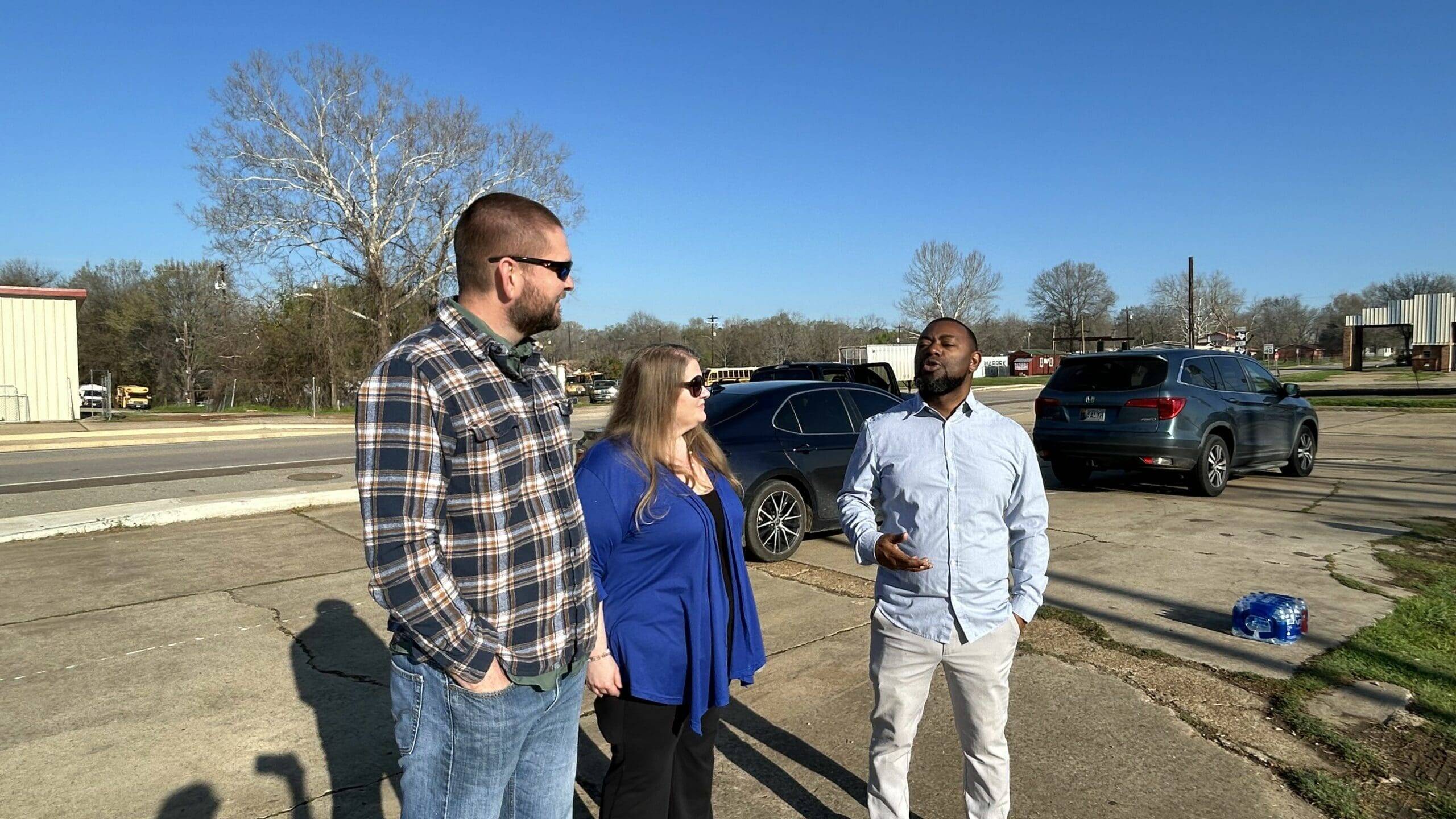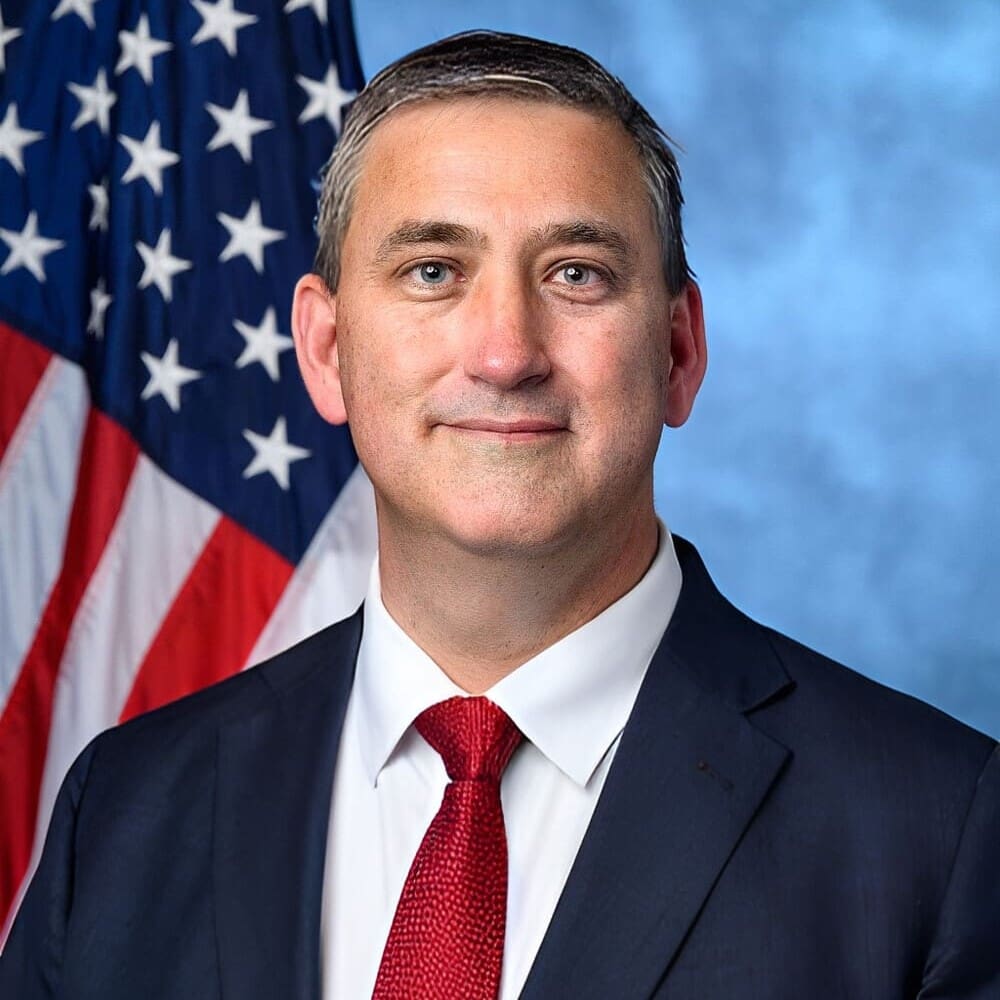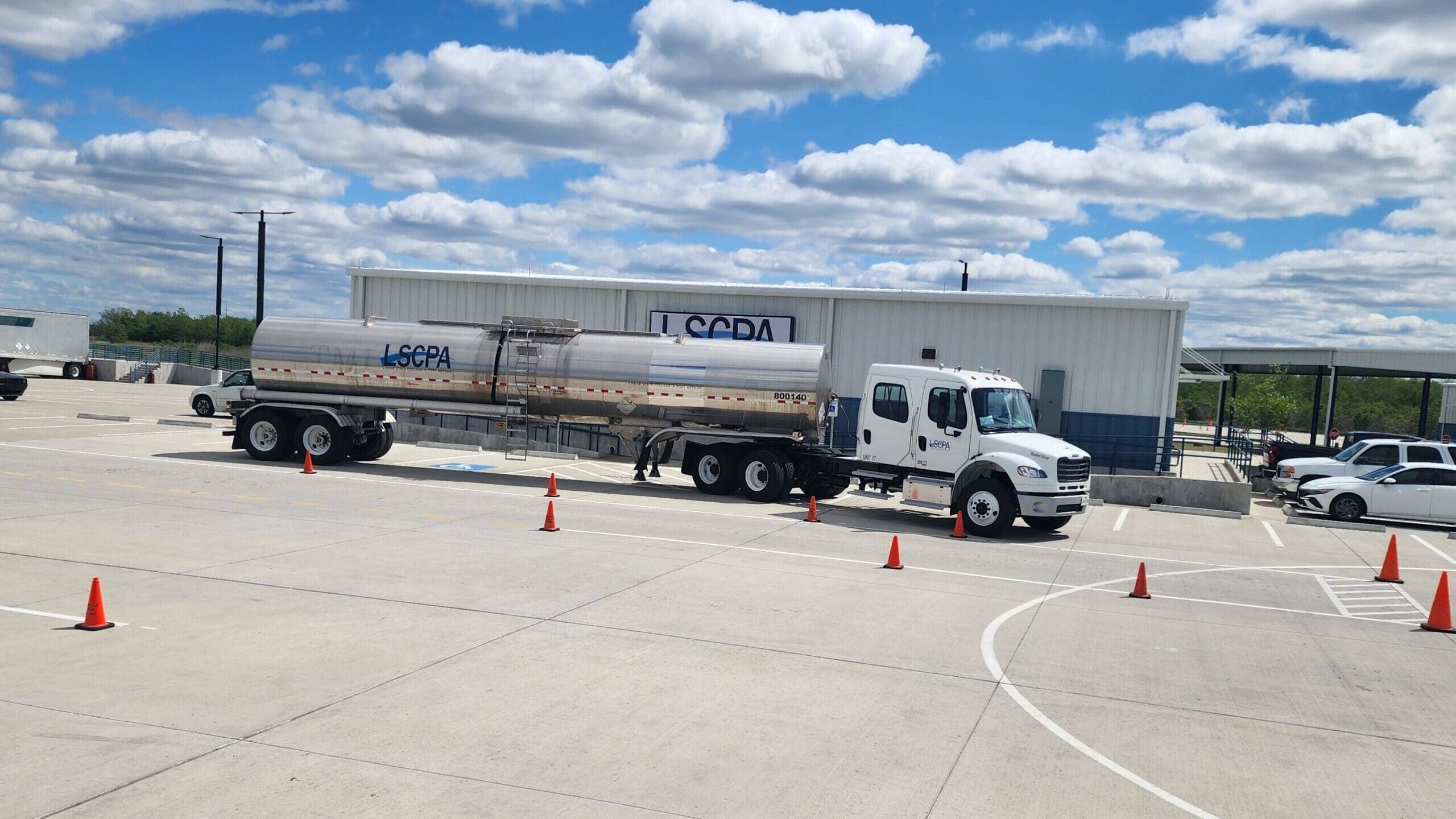In the tiny East Texas town of Pineland — where the population nears 900 and the timber industry fuels the economy — a powerful new partnership is putting opportunity in the driver’s seat.
This summer, a brand-new Commercial Driver’s License (CDL) training program is set to launch, offering residents of Sabine, San Augustine, and Shelby counties a direct route to good-paying jobs. The region, long challenged by high poverty and limited access to workforce training, has nearly 1,000 commercial driving positions sitting unfilled — yet, until now, no CDL program existed.
The initiative marks the first of its kind in the three-county area and is the result of a broad public-private collaboration between Lamar State College–Port Arthur (LSCPA), Communities Unlimited (CU), the T.L.L. Temple Foundation, USDA Rural Development, and local partners including West Sabine ISD and the City of Pineland. It was jumpstarted by a $99,000 USDA Rural Business Development Grant, matched by a $51,000 contribution from CU, made possible through Temple Foundation funding, to purchase a commercial truck and trailer.

Before the program could move forward, CU helped navigate a key challenge: a required archaeological excavation on the future training site. Working with the Texas Historical Commission, CU provided both on-the-ground support through its CS Team and Geographic Information Systems (GIS) expertise. The dig also became a learning opportunity, involving local high school students in the process. The site, adjacent to West Sabine ISD’s administrative building, will be paved within two years to serve as a permanent driving pad — part of a longer-term expansion backed by U.S. Congressman Nathaniel Moran and the Temple Foundation.
"This CDL training program is exactly the kind of investment rural East Texas needs — practical, locally driven, and focused on long-term opportunity. Pineland and the surrounding region are full of hard-working folks who simply need access to the right opportunities. Rural East Texans have the grit and determination, and it's our job to help clear the path to opportunity. This program will provide additional CDL drivers to fill the growth needs of the local timber industry. I look forward to working to deliver lasting infrastructure and economic growth to East Texas communities like Pineland."

— Rep. Nathaniel Moran (TX-1)
Meanwhile, the program is already taking shape. West Sabine ISD has prepared a classroom and dedicated a computer lab for instruction. LSCPA hired an instructor, mapped out drive routes, and identified a temporary location for pad training, where students will learn to reverse, park, and maneuver the truck. With equipment on-site and student recruitment underway, the first class is expected to begin as early as May or June 2025.
“It could never have worked without the partnership,” said Dr. Ben Stafford, Vice President for Workforce & Continuing Education at LSCPA. “The Temple Foundation had the vision. The college brought state resources. The USDA brought federal funding.”
"And Communities Unlimited brought the match we needed to bring those resources to East Texas.”
To make training more accessible, LSCPA is pursuing tuition assistance for unemployed residents through the Texas Workforce Commission, supplemented by an existing grant the college secured in anticipation of this program.
The CDL project emerged in late 2023, following a workforce analysis by the Temple Foundation that revealed a significant mismatch: a high number of open driving jobs and no local training pipeline to fill them.
“Commercial driving was the single largest employment opportunity along the eastern border of Texas,” Dr. Stafford said. “At the same time, prime-age employment — people ages 25 to 54 — was five percentage points below the national average in Sabine County. We were seeing people in their working years going without jobs while local employers were desperate for drivers.”
One of those employers is Georgia-Pacific, which operates a major timber mill in Pineland. The company recently invested $240 million to boost efficiency by 30% — but couldn’t fully benefit from the improvements due to a lack of drivers.
“Improving the mill’s efficiency is useless if you don’t also increase the amount of lumber you take in — and they couldn’t,” Stafford said. “The fit was immediate.”

“We’re recruiting now,” Stafford said. “It’s a project I’m extremely pleased to see come to fruition, and I know this city is very anxious to see the day this opens.”
City officials share the optimism.
“The City of Pineland is extremely excited to be part of this partnership,” said DeWayne Armstrong, City Manager. “This program is critical to the long-term growth of our rural economy, which relies heavily on the logging and transport industries. It creates opportunities for entrepreneurship and strengthens the ties between business leaders and our community.”
Sabine County Judge Daryl Melton echoed that sentiment.
“We’re really excited about the Commercial Driving School — not just for what it means for Sabine County, but for the entire region. Anything that helps create jobs is huge for us. This program gives our young people a chance to stay here and build a career instead of having to leave to find work.”
"It’s a step forward for economic development, and we hope it’s just the beginning.”
West Sabine ISD Superintendent Dr. Carnelius Gilder sees the launch of the CDL training program through Lamar State College-Port Arthur as a transformative milestone for the community.
“This initiative represents a powerful intersection of education, workforce development, and economic growth — priorities that have long been central to our district’s vision,” Dr. Gilder said. “It’s an incredible opportunity not just for students, but for families and the long-term sustainability of Sabine County. I applaud the collaborative efforts of our local leadership in making this a reality; their commitment shines a bright light on the promise of what’s ahead for our constituents and future generations.”
The ripple effect is already in motion. Following a visit to the region, Congressman Moran requested $1.5 million in federal funds to help establish a permanent training facility in Pineland through the USDA Community Facilities Program. While the 2025 budget was delayed, the request has been re-queued for 2026.
“Congressman Moran is very committed to bringing it to fruition,” Dr. Stafford said. “Pineland and West Sabine are some of the most rural and underserved places in his district. This kind of investment can be game-changing.”
The CDL program offers more than just job placement — it’s a fast track to the middle class. Sabine County, where the median income is just $47,061 — only 64% of the Texas median of $73,035 — has been federally designated as a “High Poverty” area by the USDA since 2011. In a region where economic opportunity has long been out of reach for many, the CDL program provides a crucial pathway to higher-paying, stable careers that can lift families out of generational poverty.
“My goal at this college is to find the unemployed and get them the highest paying job in the shortest amount of time,” Stafford said. “I have never seen anything more effective than trucking.”

Entry-level drivers can earn $38,000–$42,000 annually, and over-the-road drivers can surpass six figures within three years. For those with ambition, the potential is even greater.
“There’s a clear path to becoming an owner-operator hauling timber to the mill,” Stafford said. “Those folks can make more than $215,000 a year.”
As rural America continues to face economic transitions, the Pineland CDL initiative stands out as a model for what’s possible when vision, data, and investment align.
“In resource-starved rural communities, aligning investments is the key to unlocking opportunity,” said Jerry Kenney, Program Officer at the T.L.L. Temple Foundation. “This story in Pineland connects rural residents to high-wage, high-demand jobs — and shows what’s possible when philanthropy, higher education, community development hubs, and federal partners unite around a community-driven vision.”
For CU, whose mission is to uplift rural communities through catalytic investment, the project reflects its core values of collaboration and commitment to rural areas.
“The only reason we can do this is because we found good partners."
“This is the state of Texas doing what it’s here to do: giving every Texan the opportunity to support themselves and their families with dignity,” Dr. Stafford added. “This CDL program in Pineland is the shining star.”

